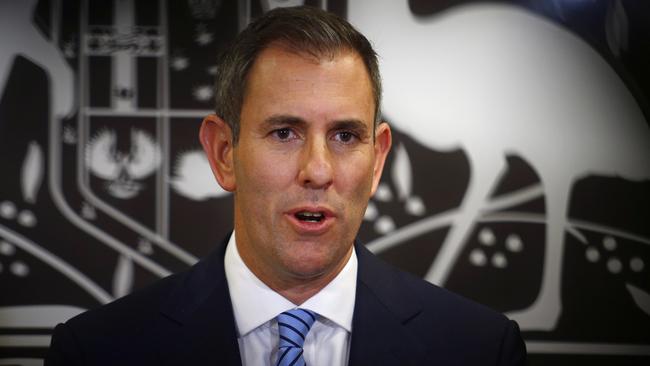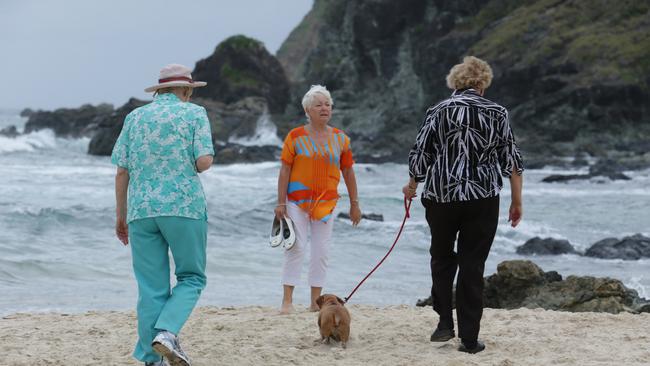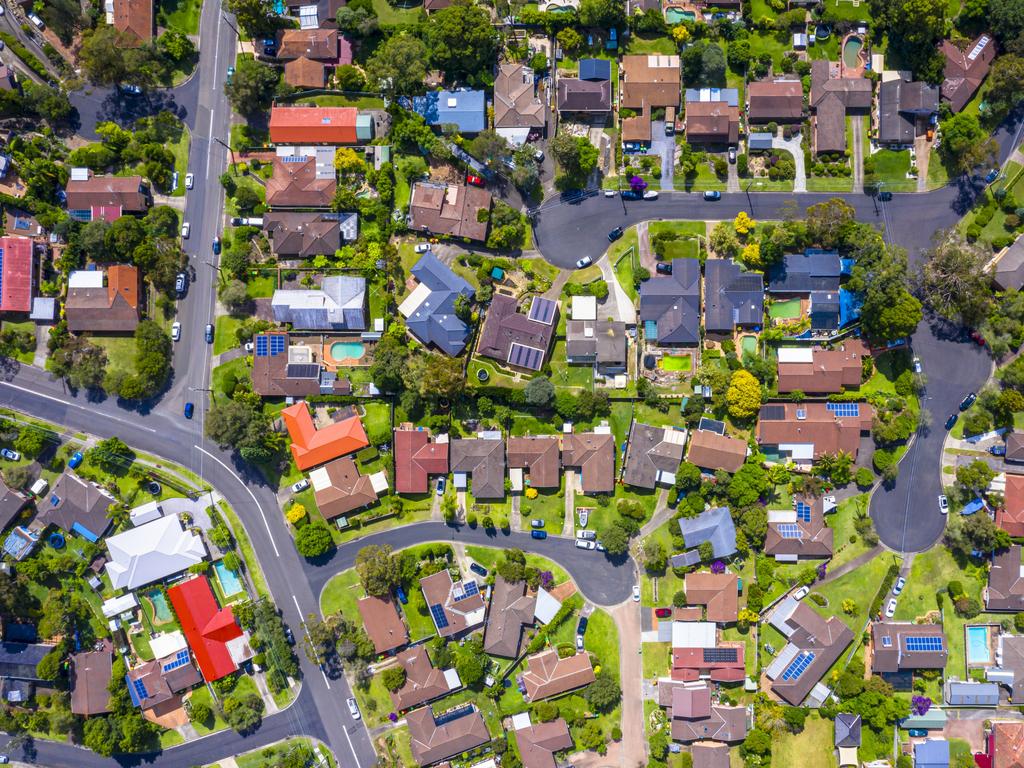Intergenerational report to reveal $140bn budget extra spending over next 40 years in defence, NDIS, aged care, health and interest on debt
The ageing population will drive almost half of future government spending, with health, the NDIS, aged care, defence and debt payments forecast to grow by 5.6pc of GDP over the next 40 years.

State spending on health, the NDIS, aged care, defence and interest payments to service debt will blow out by more than $140 billion a year over the next 40 years, revealing the extent of the structural budget crisis facing future governments.
Australia’s ageing population, increasing demand for public services and growing cost pressures, including defence commitments, are projected to accelerate government spending across five key portfolios by an estimated 5.6 per cent of GDP based on the size of the economy in today’s terms.
This means the spending pressures currently facing the Albanese government will grow from around a third of all commonwealth spending today to half of all spending by 2062-63.
The increasing spending pressures over the longer term are contained in the 2023 Intergenerational report, extracts which have been released by Treasurer Jim Chalmers ahead of a full release on Thursday.
It reveals that the cost of servicing government debt, most of which was accumulated through the fiscal response to the pandemic, will double over the next 40 years from 0.7 per cent of GDP to 1.4 per cent of GDP by 2063/64.
While spending on the NDIS was rising most rapidly, total spending on health will represent the largest increase as a share of GDP over the longer term.
At the same time, spending on welfare and income support payments to individuals and families, and education spending payments will also rise in per capital terms, but decline as a share of GDP as the population ages.

The report reveals that demographic ageing accounted for 40 per cent of the increase in government spending over the period.
“The projected growth in spending reflects growing cost pressures and demand for public services as the population ages as well as improvements in the quality of care, including from new health technologies and treatments,” extracts of the report say.
“Demographic ageing alone is estimated to account for around 40 per cent of the increase in government spending over the next 40 years.
“Ageing and a growing population are driving strong growth in health and aged care spending.
“Other factors, such as new technologies, treatments, and other improvements in care quality, are also projected to drive government spending growth.
“The main five long‑term spending pressures are health and aged care, the NDIS, defence, and interest payments on government debt.
“The Australian government’s contributions to the NDIS, aged care, interest payments, health and defence are projected to be the five fastest growing large payment categories over the next 40 years.
“NDIS and interest on government debt are the fastest growing categories over the next decade, with health and aged care growing most quickly at the end of the projection period as the population ages.
“While health spending is growing more slowly than NDIS, aged care or interest, it represents a larger share of total spending. As a result, health spending is expected to increase the most as a share of GDP over the next 40 years.”

Responding to the forecast structural budget problem, Dr Chalmers said that while the budget was currently in better shape, with a forecast surplus of around $20 billion, the pressure on the budget would intensify over coming years.
“Whether it’s essential spending on health, aged care, defence and the NDIS or the interest costs on the eye-watering debt left behind by the Liberals, the budget is under pressure in the long term,” Dr Chalmers said.
“Our responsible fiscal management is helping to repair the budget and secure essential services into the future, which is why we are taking measured actions to strengthen the structural budget position over time.
“In little over 12 months in government, the Albanese government has overseen the biggest budget turnaround in Australian history.
“We’ve delivered Australia’s first budget surplus in 15 years – a direct result of our responsible economic and fiscal management – but it will take more than one budget or one term of budgets to undo the decade of damage done by the Coalition.”
Finance Minister Katy Gallagher said the government was starting to rebuild “fiscal buffers” and improve the quality of spending and blamed the former Coalition government for the debt it inherited as a consequence of Covid-19.
“We’ve done this while delivering targeted cost of living relief to Australians who are doing it tough,” Ms Gallagher said.
“The IGR shows that the hard work must continue to keep the budget on a sustainable footing, while ensuring we deliver the services that Australians rely on every day.”








To join the conversation, please log in. Don't have an account? Register
Join the conversation, you are commenting as Logout